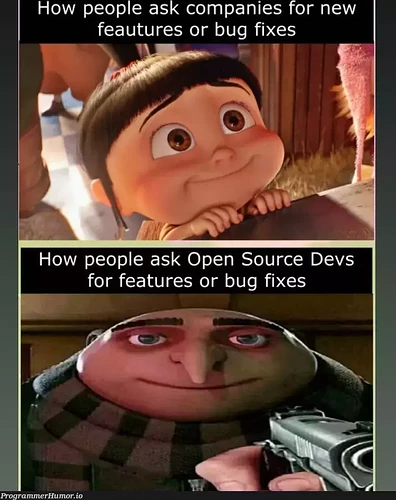I’m not comfortable with the main sentiment of the post.
I agree that expectation management is a big issue. E.g. in case of KDE a surprisingly small number of people are working on problems that otherwise require an army of full time engineers of the most valuable companies in the world. That has to be communicated.
Also that success is a poison in that regard. Let’s say someone buys a SteamDeck, checks out the plasma desktop and complains on reddit about things that aren’t to the user’s expectation. Shouldn’t that user be allowed to voice criticism the same way as a Windows device would evoke?
A lot of OSS software is “here, I wrote it for me, maybe it’s useful for you too, have it for free”. Fair enough. But we can’t therefore tether all OSS software to the notion of “free” and therefore void of any quality or criticism.
Pointing out people who feel “entitled” - and they surely exist - is appropriate, but it feels we are dodging the real issue by putting everybody in that same bucket. Otherwise the first big red banner on every OSS software project should be “this is a hobby, don’t rely anything remotely important on it”.
This is clearly not the case. There are underfunded projects who try to get more traction through their marketing, and corporate backed OSS projects with very high standards.
tl;dr It isn’t the user’s fault that they can’t distinguish between a four hours a month hobby and a multi-billion corporation backed OSS project. And connecting OSS and free with hobby is counterproductive.
